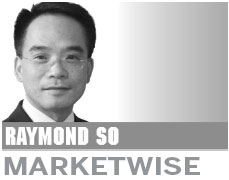Watch out for possible PBOC quantitative-easing moves
Updated: 2012-09-20 06:43
By Raymond So(HK Edition)
|
|||||||

Ben Bernanke announced last week that the Federal Reserve will purchase $40 billion worth of Mortgage Backed Securities (MBS) each month with no specific deadline. This policy is considered as a new version of Quantitative Easing (QE) and many people called this round of QE the ultimate QE or simply QE3. Without a specific ending date of this round of QE, in theory, the Fed can continue QE forever. Even though in terms of amount of MBS to be purchased, 40 billion US dollars of MBS is still not a big amount. The question, however, is not on the absolute amount of funds that the Federal Reserve is pouring into the market. It is the signal behind the Fed's decision.
The last two rounds of QE have raised the concerns of too much money chasing around goods and assets, and the main street is further afraid of inflation. From the experience of the last two rounds of QE, asset prices elsewhere faced upward pressure. Take Hong Kong as an example. Housing prices increased by over 50 percent because of the QE. Investors have formed the expectation that QE will imply asset price inflation. Whether this view is substantiated or not, however, is largely an empirical question.
If we look at the impact of the last two rounds of QE more carefully, actually QE2 did not have an impact as big as that of QE1. Asset prices increase because of inflationary fear, but the general economic conditions are not good enough to drive prices up by a big margin. In other words, it is quite obvious that the new QE will bring inflationary pressure to the market, but the magnitude of the inflationary pressure should not be over-estimated.
What does that mean to the market? If asset prices are driven by fear of inflation, then actual inflation figures will serve as a good test to determine if the Main Street is too naive in making a connection between QEs and inflation. If inflation is proven to be less acute later, then asset prices may not be justified at the high level.
Hong Kong's situation is more complicated than in other places, simply because of the Hong Kong dollar peg. QE 3 will no doubt put further pressure on the US dollar. If the greenback depreciates against major currencies, Hong Kong dollar will follow suit. With a depreciating currency, imported inflation will be a bigger concern. Hence, it is a real rational choice for the city to find ways to hedge against inflation. Home transactions surged 70 percent during last weekend, indicating that some investors had decided to hedge inflation by investing in properties. It is not surprising that the Hong Kong Monetary Authority has moved to restrain mortgage lending as a safeguard to the local financial system.
So far, the focus is still on the impact of QE3 on global economies. But there is a bigger issue to be considered. The European Central Bank has announced its plan to purchase short-term bonds and the Fed has launched QE3. How about the People's Bank of China (PBOC)? Will it follow suit and inject more liquidity into the market? If no, then the weakening US dollar will put upward pressure on the yuan. If yes, then more liquidity will push up China's inflation and may lead to more speculative activities in Hong Kong's asset markets. Hence, the actions of the PBOC should be closely monitored as they will have far reaching implications to the asset markets.
The author is dean, School of Business at Hang Seng Management College. The views expressed here are entirely his own.
(HK Edition 09/20/2012 page2)